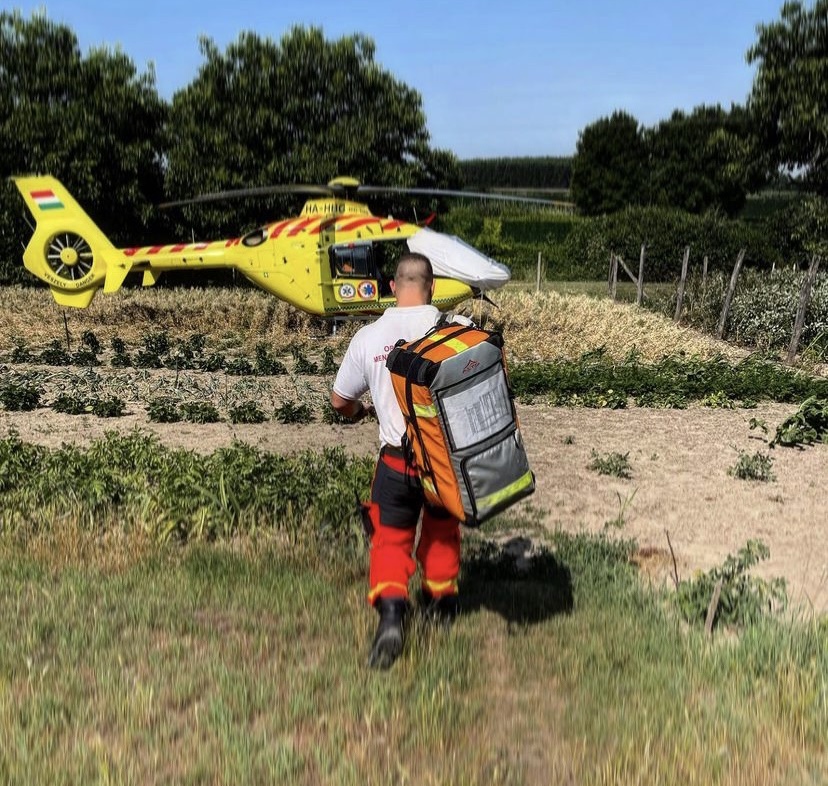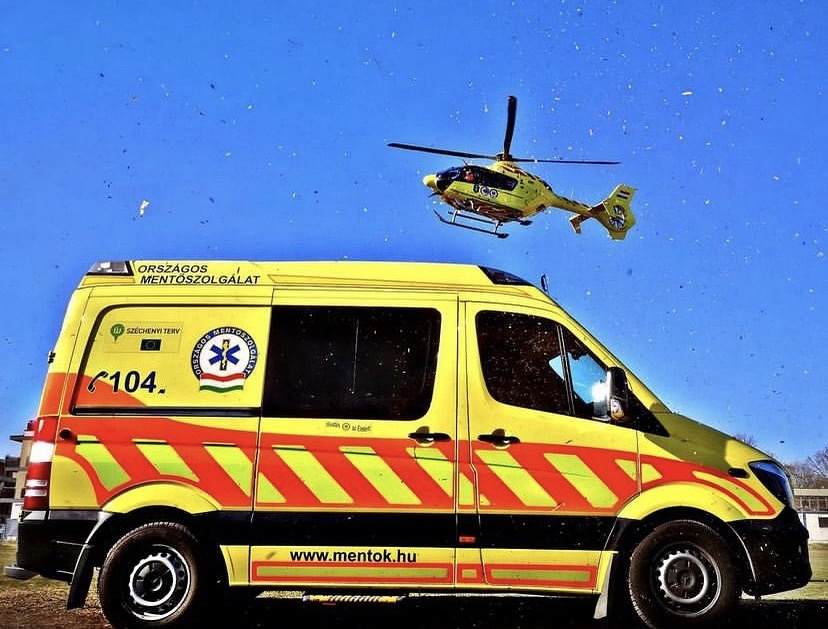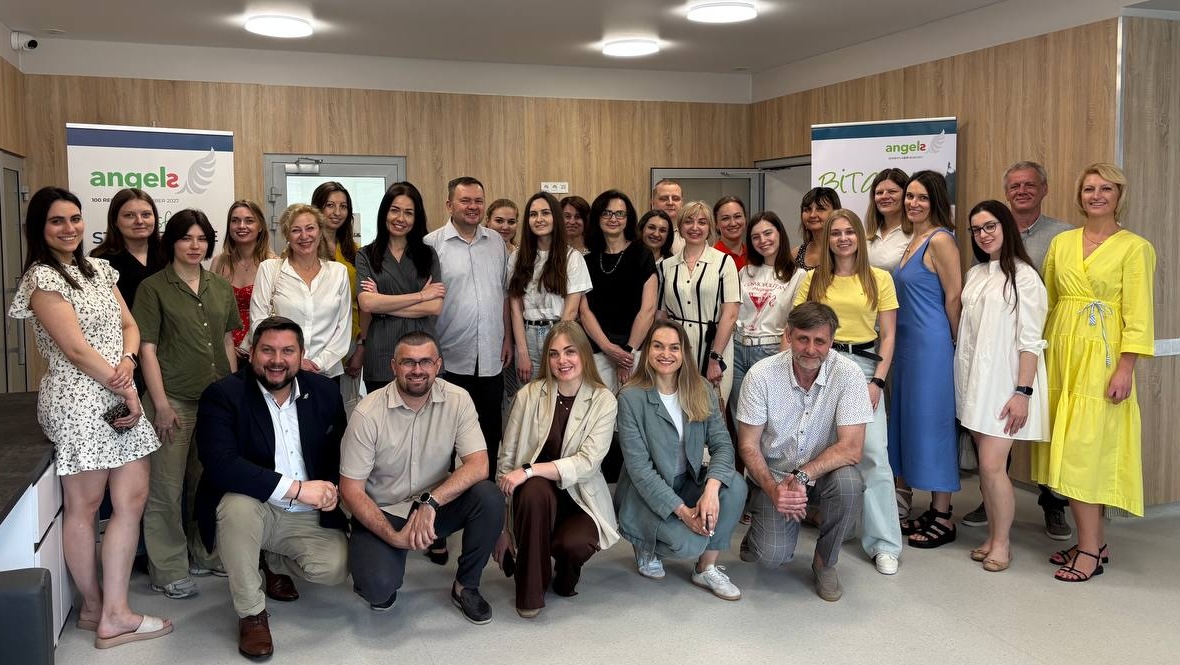
В ранние часы работы 15 апреля 1912 пассажирский паровой паузу RMS Carpathia, по маршруту из Нью-Йорка в Европу, звонил в дистресс-синдром из 58 морских миль. Бритийский пассажирский прокладчик на ее тайном порыве ударился айсбергом и начал опускаться. Карпатия достигла сцены через четыре часа, найдя только спасательных лодок, которые переносят 706 замороженных, травмированных и травмированных выживших.
Мужчина, которому потребовалась помощь, был 26-летним Карпадом Ленгиль, который добровольно участвовал в Ассоциации скорой помощи добровольца Будапеста в его родине в Венгрии с 18 лет, был единственным врачом, имеющим опыт работы в качестве парамедик.
Арпад Ленгиел стал бы вспомнившимся венгерским доктором, который спас выживших титаников, иАссоциацией скорой помощи добровольцам Будапеста в качестве первого венгерской организованной системы скорая помощь, предшественника Венгерской национальной службы скорой помощи, ОММСЗ.

Удивительная бомба адреналина
Спасительная работа сегодня — это серьезный крик, когда 18-летний Арпад Ленгель вступил в Ассоциацию скорой помощи в Будапеште в 1904 году. Она также заметно отличается от того, когда второй год студентка-медик начала волонтерскую работу в качестве медсестра скорой экстренная в OMSZ в начале 2000-х годов. В июне 2023 г. доктор Габор Ксато сообщил на веб-сайте civilek.hu о существовании еще более рудиментарной системы. Скорая помощь была отправлена по радио, не зная ни точных координат, ни каких-либо деталей. "В большинстве случаев мы могли бы угадать, какая задача нас ждет", - сказал он. "Когда мы прибыли, все смотрели на нас как на воплощение надежды. Несмотря на то, что это была подавляющая ответственность, это было также воодушевляющее ощущение и удивительная бомба адреналина".
Истории, рассказанные его старшим бабушкой, дипломированной медсестра, вызвали интерес к медицине. На протяжении всего его обучения в Медицинском университете Дебрецена он продолжал посвящать ночи и выходные работе спасательной деятельности, мало зная, что он будет идти в OMSZ к его тридцати годам.
OMSZ — это центральная служба скорой помощи с семью региональными организациями. Как генеральный директор с 2017 года, д-р Габор Сэто отвечает за управление крупнейшим работодателем в сфере медицинское обслуживание в Венгрии, в котором работают 8500 сотрудников и 256 пунктов скорая помощь. В ответ на 1,2 миллиона экстренных ситуаций его стоимость составляет около 800 километров в год, а цель состоит в том, чтобы экстренная с ним можно было связаться в течение 15 минут.
Его инновационное лидерство и использование технологий для достижения меняющих ситуацию результатов признаны основным фактором недавнего успеха компании OMSZ в награждении С помощью СМП Angels Awards. В первом квартале 2023 года в Европе было получено семь из 15 наград в виде алмаза, причем каждый из семи регионов соответствовал самым высоким стандартам в догоспитальная помощь при инсульте.

Непрерывный аудит производительности
консультант Angels в Венгрии Золт Лакатос поразмышлял о том, почему результаты 2023 года были намного лучше, чем в предыдущем году, когда только в одном из семи регионов был присвоен статус алмаза, а остальные должны были прийти к положению золота. Его анализ указывает на высокоэффективное сочетание центрального надзора и регионального участия, а также на образование, обратную связь и изменения в руководстве данными.
Проект по усовершенствованию основан на результатах штаб-квартиры, где д-р Цато приоритизировал внутренний сбор данных в рамках культуры мониторинга качества и внедрил технологию для поддержки этого процесса. Истенхусизм по новым решениям и улучшению качества передается медицинским директором д-ромГирги Папай, который отвечает за непрерывный процесс аудита производительности, который помогает в сборе цифровых данных.
"Инновации встроены в ДНК организации", доктор Цато сообщил в техническом журнале Медицинский футурист в интервью 2020 года. "В настоящее время есть большой опыт инноваций в области умных решений в области медицинское обслуживание".
Операция OMSZ генерирует огромное количество данных, которые, используя интеллектуальные алгоритмы, могут быть использованы для прогнозирования, например, статистической вероятности аварий в определенных местах или для помощи в планировании производительности.
В отличие от радиотехнологии, полученной в дни студента, под руководством д-ра Цато каждая скорая помощь OMSZ оснащена планшетом, где каждый случай регистрируется в централизованно стандартизированной форме. Измерение производительности по критериям наград С помощью СМП привело к внесению поправок, имеющих особое значение для пациентов с инсульт, таких как "лекарственные препараты для пациент" и "последнее замеченное нормальное состояние", добавленных в качестве обязательных полей.
Задержки в работе регулярно анализируются с предоставлением обратной связи региональным директорам и руководителям станций, а неудачи в работе фильтруются центральным подразделением, где они инициируют анализ, обратную связь, обсуждение и корректирующие действия, которые включают обучение.
Электронные обучающие материалы, которые являются частью обязательной учебной программы С помощью СМП, были обновлены с целью включения информации об инсульт, а региональные менеджеры получают поддержку от Angels для предоставления специального обучения по вопросам инсульт для отправки, медсестер и медсестер. Ежемесячные совещания по вопросам качества, проводимые Angels, в которых присутствуют больницы и С помощью СМП, создали еще один важный канал обратной связи с улучшенной коммуникацией, в конечном итоге выплачивая дивиденды в любых чрезвычайных ситуациях, а не только инсульт.

Истории, которые вдохновляют
Что награды С помощью СМП Angels помогают выявить системные и местные недостатки, также является мнением Ференка Толди, сотрудника скорая помощь в OMSZ в течение 30 лет. Она даже могла создать дух дружеской конкуренции.
Ференк говорит: "Награды прошлого года, или в некоторых случаях отсутствие какого-либо награда, стимулировали регионы к принятию мер и устранению проблем, выявленных в рамках программы мониторинга качества Angels. Один регион, Южный Великий обыкновенный, оказался примером, так как в прошлом году они получили бриллиантовую награда, а другие — вдохновение из своей история.
Ференк говорит, что в конечном итоге сбор данных превратился в золотые бриллианты. "Ключевым фактором был постоянный сбор данных из всей системы и тщательный мониторинг всех показателей эффективности. Кроме того, крайне важно было привлечь региональных директоров и координаторов в качестве лидеров в своем регионе, так как они были определены для решения любой проблемы на основе наших собственных показателей и показателей эффективности Angels.
Чем больше у нас данных, и чем точнее мы анализируем эти данные, тем ценнее обратная связь. Мы можем обнаружить пробелы в системе и применить эти результаты при создании следующего набора протоколов.
"Как и в других сферах жизни, анализ и синтез данных приводят к впечатляющему улучшению".



